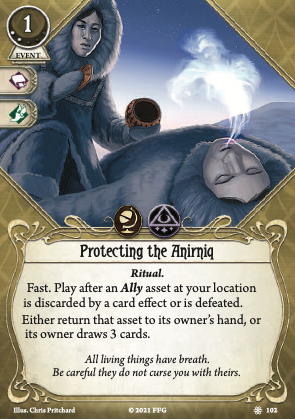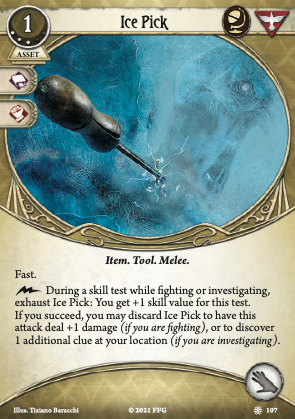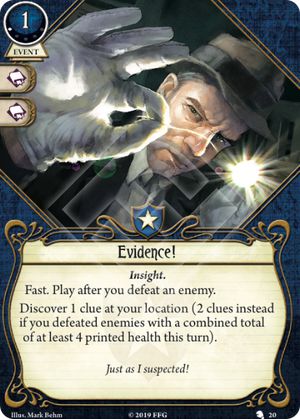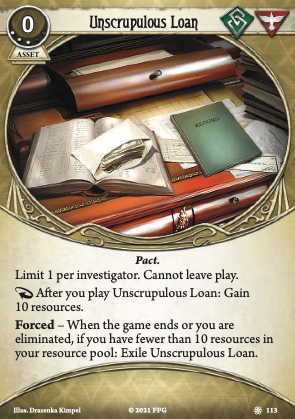
While an excellent card to play for either of its effects, as with all reactive cards of this sort, you need to have this card in hand at the time your ally is discarded (and be able to play it). You also have to be at the correct location, if you are planning to use it on a friend.
...Except if you have A Chance Encounter. A cheap, level 0 card that lets you pull an ally from any discard pile, long after their untimely end, and put it into play, where it will either get defeated or self discard by the end of the round, unless you do something silly like bump it out with another ally.
Card draw is always useful, being able to resurrect an ally from your discard pile is great. But most survivors have access to the level 2 A Chance Encounter and Resourceful, so this benefit is not particularly special. Where this combo truly shines is in multiplayer, where you grab an ally from another player's discard pile, get to use it for one turn, and then either give that player 3 cards or their (preferably) high XP ally back. You can do this all the way across the map - there is no need to be anywhere near each other.
If you can force that ally to be discarded during your turn, that's even better because then the other investigator won't have to wait till the end of the round to get the bonuses. An investigator bogged down by enemies getting a quick infusion of cards, or another one on the brink of defeat suddenly receiving a soak in hand, are great tricks you can play with this combo.
Minh, Agnes, Patrice, Lola have unrestricted access to both cards, while Marie, Jim and possibly Mandy will have to burn one of their splash cards. You don't need both of them on a single investigator to pull this off, but it definitely helps.



